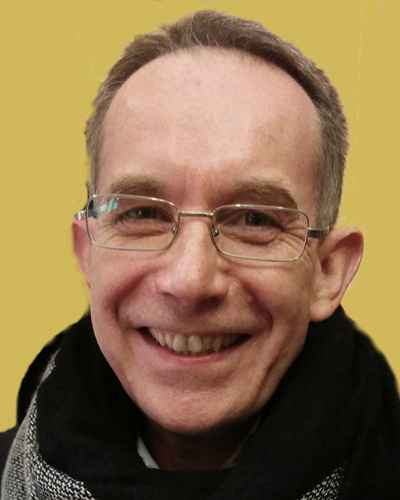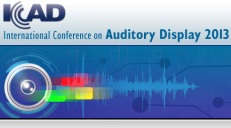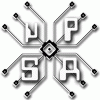CONTACT
Lodz University of Technology, Institute of Electronics,
Medical Electronics Division
Wolczanska 211/215, PL90-924 Lodz, Poland
room 216 (2nd floor)
![]() http://orcid.org/0000-0001-9102-4929
http://orcid.org/0000-0001-9102-4929
e-mail: michal.strzelecki[at]p.lodz.pl
tel. +48 42 631 26 31

Michał Strzelecki has been a Full Professor at the Institute of Electronics, Lodz University of Technology (TUL) since 2007. He served as Deputy Director of the Institute for Teaching and Research from 2004 to 2019 and as Vice-Dean for Research at the Faculty of Electrical, Electronic, Computer, and Control Engineering, TUL until 2020.
His research interests encompass biomedical signal and image processing, data analysis, and artificial intelligence, with a specific focus on image texture analysis and applications of artificial neural networks. Prof. Strzelecki actively collaborates with domestic and international medical universities on diagnostic system construction and development.
Prof. Strzelecki has participated in numerous international research programs and projects (including COST B21, BM1103, TD1007, DGF, 7FP, projects funded by the National Science Centre and the National Centre for Research and Development), authored over 200 scientific publications, and served as a Visiting Professor at Jeonbuk National University, Jeonju, Republic of Korea, from 2006 to 2008.
Michał Strzelecki is a member of the Image Processing Society (Member of the Management Board 2012-2016), the Polish Society of Medical Informatics and the European Campus Card Association (Board of Directors from 2006 to 2015, Vice-President from 2016 to 2019).
He has extensive experience in evaluating research projects and serves as an expert for several organizations, including NCBiR, NCN, Ministry of Science and Higher Education. He participated in the evaluation of international projects founded by the National Fund for Scientific and Technological Development of the Chilean Government, the Framework Program for Research, Technological Development and Innovation of the Research Promotion Foundation, Cyprus, Czech Health Research Council, Czech Science Foundation, COST (European Cooperation in Science and Technology), Natural Sciences and Engineering Research Council of Canada, Horizon Europe 2024 EIC Pathfinder.
Education:
| 1988 | M.Sc. in electronics, the Faculty of Electrical Engineering of the Technical University of Lodz (TUL), Poland |
|
| 1995 | Ph.D. in electronics, the Faculty of Electrical and Electronic Engineering, TUL | |
| 2005 | D.Sc. (Doctor Habilitated) in computer science (analysis of biomedical signals and images), Faculty of Electrical Engineering, Automatics, Informatics and Electronics, AGH University of Science and Technology, Cracow, Poland |
|
| 2018 | Professor in Engineering and Technology | |
Professional experience:
| 1989 – 1995 | Assistant, Department of Medical Electronics, Institute of Electronics, TUL |
| 1996 – 2007 | Assistant Professor, Institute of Electronics, TUL |
| 2006 – 2008 | Visiting Professor, Chonbuk National University, Jeonju, Republic of Korea |
| 2007 – 2019 |
Associate Professor, Institute of Electronics, TUL |
| 2004 – 2015 | Deputy Director of the Institute of Electronics for Teaching |
| 2015 – 2019 |
Deputy Director of the Institute of Electronics for Research |
| 2016 – 2020 |
A member of the Senate of the Lodz University of Technology |
|
2016 – 2020 since 2019 2019 – 2020 2021 - 2023 since 2021 since 2024 |
Vice-Dean for Research, the Faculty of Electrical, Electronic, Computer and Control Engineering, TUL Full Professor, Institute of Electronics, TUL Head of the Information and communication technology discipline at TUL A member of the Committee on Biocybernetics and Biomedical Engineering, Polish Academy of Sciences Chairman of the Committee for the Evaluation of Scientific Disciplines of TUL A member of the Committee on Metrology and Research Equipment, Polish Academy of Sciences |
Prizes and awards
- The Best Paper Award, International Symposium on Information Technology Convergence, Jeonju, Korea (M. Strzelecki, J. de Certaines, S. Ko, Segmentation of 3D MR Images with Synchronized Oscillators Network), 2007
- 1st place in the category "The most important scientific achievement" of the competition "Top List of the Technical University of Lodz - the most important achievements of the first decade of the XXI century" (A. Materka, M. Strzelecki, P. Szczypiński, M. Kociołek and A. Klepaczko), 2010.
- Silver Medal for Long Service, 2010.
- EUNIS Elite Award for The Card Technology Research Center of the Waterford Institute of Technology (WIT, Ireland) for the consortium leader (BTIT, University of Zagreb and Institute of Electronics, Poland) for the European Educational Connectivity Solution (2009-2011, EU), 2012.
- The Best Paper Award in the DSP theory session, IEEE SPA Conference, Poznan, Poland (A. Materka, M. Strzelecki, On the Importance of MRI Nonuniformity Correction on Texture Analysis), 2013.
- Diploma for supervisor of Mr. Z. Mudza B.Sc. thesis "Developing a communication system for swarm intelligence mobile platforms", which won the 2nd prize in the Association of Polish Electrical Engineers competition for the best engineering thesis at the Faculty of EECC, TUL, 2013/14.
- Medal of the National Education Commission, 2014.
- The Best Paper Award in the Biomedical Applications Session, IEEE SPA 2016 Conference, Poznan, Poland (A. Polańczyk, T. Woźniak, M. Strzelecki, W. Szubert, L. Stefańczyk, Evaluating an algorithm for 3D reconstruction of blood vessels for further Simulations of hemodynamic in human artery branches).
- Diploma for supervisor of Mr. Z. Tyfa Master thesis "MeMoS - a software tool for the extraction of anatomical structures from 3D medical images", which won the 1st prize in the Association of Polish Electrical Engineers competition for the best M.Sc. thesis at the Faculty of EECC, TUL, 2015/16.
- Commemorative medal on the occasion of the 80th anniversary of the Military Medical Academy (Medical University of Lodz, Poland) clinical hospital for long-term scientific cooperation in the field of development of methods for supporting diagnostic imaging of brain diseases, 2017.







